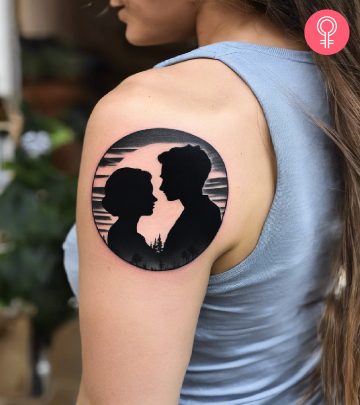What Your Choice of Words Says About Your Personality?

Image: Shutterstock
“All our words are but crumbs that fall down from the feast of the mind.”
—Kahlil Gibran
Most often than not, the words that we use to say something, say something about us. It could be a face-to-face conversation, an email or even a text message. This is very similar to how we judge our favorite author’s characteristics based on the words they use.
Fun fact: Trying to sound smart may, in fact, make you sound stupid. Here’s how.
For an average person, the brain finds comfort in processing concepts that are easy to comprehend, against difficult ones. As a result, we show an inclination to the familiar in comparison to the unfamiliar. Therefore, using bigger and complicated words tend to be less effective than smaller and simple words. Along the same lines, people who use more words than necessary may also come across as untruthful. With more sense-based words, liars tend to avoid conversational terms and use more negations instead. In addition, it can be noticed that people speaking the truth tend to respond with first-person.
By carefully understanding the choice of words, a person can be classified as an extrovert or an introvert. In order to explain a particular aspect, extroverts and introverts can be noticed to use different sets of words. For instance, while describing a situation, extroverts may prefer terms that are more intangible, while introverts may opt for terms that are precise. In addition, extroverts mostly use words that are more collective in nature and are related to people, such as ‘us’, ‘our’ and ‘we’. On the other hand, introverts often tend to use self-centered words, such as ‘I’, ‘me’ and ‘my’.
Another largely underrated factor is the usage of low-level words in providing hints regarding large-scale behaviors. The unimportant words in a conversation can reveal a great deal of information about a person and his/her characteristics. These words can not only help go into the conversation in-depth but also understand the writer’s state of mind at the time of writing.
Usually, written content can prove to be useful in not only understanding the writer’s psyche but also to infer their age and gender. On a bigger picture, women writers show an inclination to pronouns, while men choose articles and longer words. People from the older generation are often considered better at writing and other forms of expression. In addition, they show preference to optimism in their speech and refrain from using words that express negative emotions (1).
On the speaking front, the use of alternate words may give hints about one’s attitude. For instance, the word “problem”. When looking at a task at hand, pointing out a problem makes it difficult and dull to overcome. However, when replaced with the world “challenge” it has a brighter side to it, making it seem like a time to unite. The negative word usually refers to a pessimist and vice-versa.
The use of persuasive words like “challenge” can not only indicate someone with a strong personality, but also someone with a great rapport with people around him/her. These people can often be found talking more about “you”, “us” and “we”, rather than speak significantly about themselves. Words have the capability to heal, and when they are used in the right context, they can go a long way. People who can combine optimistic and extrovert markers often come across as empathetic.
On a bigger picture, the use of words can help us classify people into the universally known Big Five personalities—openness, conscientiousness, extroversion, agreeableness, and neuroticism (2).
People who are considered as open often use words that are related to abstract, such as art and poetry, while those on conscientious side talk more about adventures accomplished and planned for. Extroverts, or the “party animals” have conversations relating to socializing and gathering. Positive and pleasant words are correlated with agreeable people, and of course, neurotic people have pessimistic and negative things to say.
Putting everything in a nutshell, you may ask, “what exactly is the need to understand the link between words and personality?” Humans are social and herd animals with a strong necessity to communicate with one another. For the sole purpose, languages were created and words are used to bring out information, message, emotion, and intent. The impact that these words leave on people is by far the most expensive currency there is. This is true especially because of how the words play a critical role in people’s judgment and understanding of us.
In the process of understanding people and their choice, we can diver deeper into their personalities and find the truth of their emotions and intent. While this can be useful in understanding the people around us, it can be equally important to choose the right words while we speak. This can change not only how others see us, but also how we envision ourselves. This is what we think about words and personalities. What do you think? Share in the comments below.

























